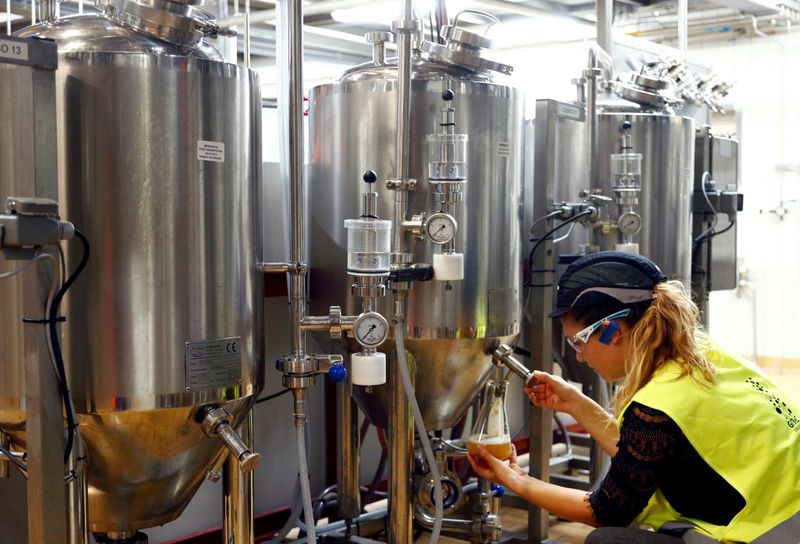By Emma Rumney
LONDON (Reuters) -Anheuser-Busch InBev beat sales estimates and raised its annual dividend by 9% on Thursday, but its shares slipped over 3% as investors weighed the absence of a new share buyback, poor U.S. sales and the impact of hyperinflation in Argentina.
Investors in the world's largest brewer are hungry for returns after years of focus on debt reduction as AB InBev tried to pay off an acquisition spree.
That spree built it into a global beer behemoth, but also left it with debts of over $100 billion that it struggled to reduce as quickly as hoped, limiting its ability to return cash to shareholders.
They were cheered in October when AB InBev announced an unexpected, $1 billion share buyback. However, it did not mention any new scheme on Thursday even though October's was 90% complete and it had reduced debt further.
"We are going to decide whether we do share buybacks, dividends or whatever... throughout the year when the moment is appropriate," Chief Financial Officer Fernando Tennenbaum later told investors.
"It is disappointing," said Daniel Isaacs, equity analyst at AB InBev investor 36ONE, on the absence of a new buyback, adding however this was not necessarily expected and would only have been a pleasant surprise.
AB InBev also reported a 6.2% rise in fourth-quarter sales, slightly ahead of analyst expectations. However, this was reduced to just 0.5% when the impact of hyperinflation in Argentina was excluded.
AB InBev's U.S. volumes were also weaker than expected, falling 15.3% in the fourth quarter.
The division has been hit by a consumer boycott of key U.S. brand Bud Light, knocking it off its top spot as the best-selling U.S. beer.
However, analysts believe the impact of the boycott should now recede and some investors say the future looks brighter across the beer industry.

AB InBev said it expects to grow core profits in line with its medium-term outlook of 4-8% in 2024. Its shares were down 3.25% at 1529 GMT.
Rival Heineken (AS:HEIN), the world's No.2 brewer, disappointed investors earlier this month after it struck a more downbeat tone for 2024.